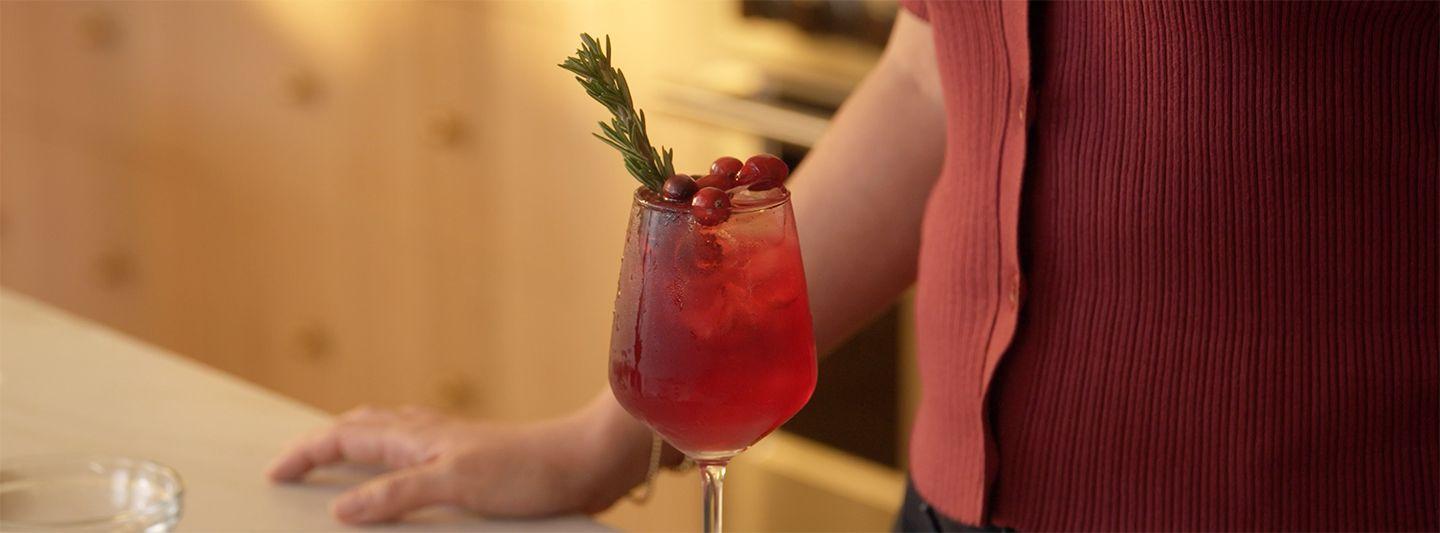Say no to nightcaps for better glucose and sleep
Alcohol can affect your sleep quality and make it harder to keep your glucose steady. Learn more about why it has these effects here.
Christina Stiehl,
Managing Editor
Pamela Nisevich Bede, MS, RD, CSSD, LD,
Medical Affairs
Published:
February 19, 2025
Updated:
April 14, 2025
Read time:
2 minutes

Start Lingo today for just £59
Learn how your body responds to food and exercise with a 2-week plan*, no commitment.
Buy now
A drink in the evening after a long day might make you feel relaxed, but behind the scenes, the effects vary between individuals and don’t typically result in a good night’s rest.
Even a small amount of alcohol can reduce your sleep quality. 1 Alcohol dehydrates your body, and many drinks contain carbohydrates. Both these factors make it harder for your body to stabilise your glucose. The carbohydrates in the drink can spike your glucose, leading to a rapid drop in energy levels. This can cause restless and disrupted sleep, which means you’ll feel less refreshed the next day. 2 Increased glucose can also cause more frequent urination during the night, which can further disrupt your sleep.
Good sleep helps glucose control
Better sleep means less cortisol (a stress hormone) in your body during the night. And lower cortisol helps your body stay steady while you sleep. 3 Sleep is vital to recharging your mind and body.
A healthier combination
If you do have alcohol in the evening, have some unsalted nuts and water with your beverage. The protein and healthy fats in the nuts support steady glucose 4, and the water works to keep you hydrated.
A final note from Lingo
Drinking alcohol can reduce the quality of your sleep as well as make it more difficult for you to manage your glucose. Prioritise good quality sleep, hydrating your body with water and consuming foods that are rich in protein and healthy fats.
The Lingo Glucose System is intended for users 18 years and older not on insulin. It is NOT intended for diagnosis of diseases, including diabetes.
The Lingo program does not guarantee that everyone will achieve the same results as individual responses may vary. Consult your healthcare professional before making changes to your diet or exercise regimen or if you have an eating disorder or a history of eating disorders.
© 2025 Abbott. All rights reserved. The biosensor shape and appearance, Lingo, and related brand marks are marks and/or designs of the Abbott group of companies in various territories. Other marks are the property of their respective owners.
ALB-2076
Published:
February 19, 2025
Updated:
April 14, 2025
Read time:
2 minutes


Christina Stiehl is the Managing Editor at Lingo. She graduated from the University of Missouri School of Journalism and has more than a decade of professional editorial experience in the health and wellness industry. Christina has written for top media publications including SELF, PS, Shape, Well+Good, Thrillist, and VICE before pivoting to leading content at health tech companies.


Pamela Nisevich Bede, MS, RD, CSSD, LD, is a certified specialist in sports dietetics and an expert in nutrition communications. Pam earned her Bachelor of Science degree in Dietetics from Miami University and a Master of Science in Medical Dietetics from The Ohio State University. While at Abbott Nutrition, Pam was the Global Nutrition Lead at Zone Perfect Nutrition and Ensure and was previously the Manager of Nutrition Marketing at EAS Sports Nutrition.